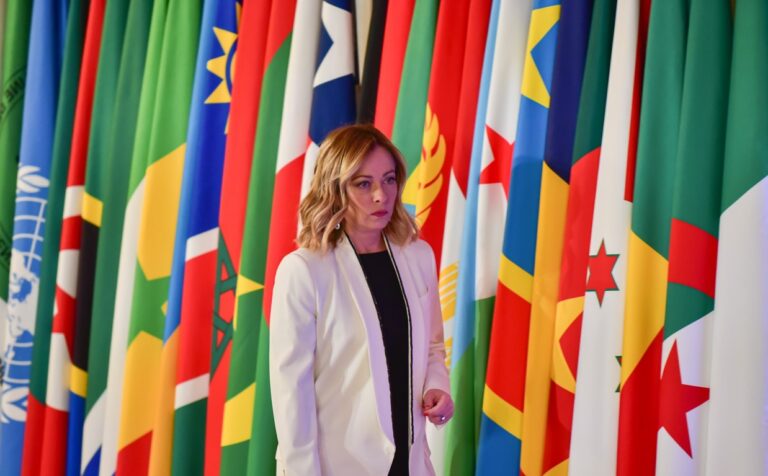A strategic plan for the construction of a new partnership between Italy and African states which derives its name from Enrico Mattei, the founder of Eni, who already in the 1950s had sought a cooperative relationship with African countries, to allow them to develop natural resources. Hence, therefore, the name: Piano Mattei.
The energy and social plan of the Eni president who passed away in 1962 aims to emulate Europe’s “non-predatory” and “global” approach towards the African continent. In other words, it intends to promote the African continent, guarantee its sustainable and long-lasting development without exploiting it.
The Mattei Plan can count on 5.5 billion euros between credits, gift operations and guarantees: approximately 3 billion from the Italian climate fund and 2.5 billion and a half from the development cooperation fund.
Table of Contents
The points of the Mattei Plan
Funds
The Plan can count on 5.5 billion euros between credits, gift operations and guarantees: approximately 3 billion from the Italian climate fund and 2.5 billion and a half from the Development Cooperation fund.
The government intends to “involve international financial institutions, multilateral development banks, the European Union and other donor states”.
Within a year, it has been announced, a new financial instrument will be created to facilitate investments of the private sector.
Pilot projects in 9 countries
At least 9 African countries are involved in pilot projects:
- Morocco
- Tunisia
- Algeria
- Egypt
- Ivory Coast
- Ethiopia
- Kenya
- the Democratic Republic of Congo
- Mozambique
Education and training
The Plan intends to promote the training and updating of teachers, the launch of new professional courses in line with the needs of the labor market and collaboration with companies, involving in particular Italian operators and exploiting the model Italian SMEs.
For example, the prime minister announced the creation in Morocco of “a large center of excellence for professional training on the topic of renewable energy”. While in Tunisia, a structural redevelopment of schools and exchanges between students and teachers are planned as early as 2024.
Agriculture
The aim is to reduce malnutrition rates, encourage the development of agri-food chains, support the development of non-fossil biofuels.
For Algeria “a satellite monitoring project on agriculture” is planned, in Mozambique “an agri-food center that enhances the excellence and export of local products”.
While in Egypt the Plan intends to “support in an area of 200 kilometers from Alessandria the production of wheat, soya, corn and sunflower, with investments in machinery, seeds, technologies and new cultivation methods”.
Health
The Plan aims to strengthen health systems, improving the accessibility and quality of primary maternal and child services (objective of a project in Côte d’Ivoire). And, to strengthen local capacities in terms of management of health personnel and research.
As well as to develop strategies for preventing and containing health threats, in particular pandemics and natural disasters.
Energy
It is one of the central sectors of the Plan with the aim of making Italy an energy hub, a bridge between Europe and Africa, as with “the Elmed electrical interconnection between Italy and Tunisia and the new corridor for the transport of hydrogen from North Africa to Central Europe via Italy”.
The climate-energy connection is central, with interventions to strengthen energy efficiency and the use of renewable energy.
It is a commitment that will also include the development of technologies applied to energy and innovation centers. There, Italian companies will be able to select local start-ups and thus support employment.
This pillar includes “an initiative in Kenya dedicated to the development of the biofuels supply chain, which aims to involve up to approximately 400 thousand farmers by 2027″.
Water
A very precious resource, the scarcity of which in Africa – it is underlined – represents one of the main factors of food insecurity, conflict and the push for migration.
The interventions include the drilling of wells, powered by photovoltaic systems, and investments in distribution networks.
For example, one of the projects for the Democratic Republic of Congo involves the “construction of wells and water distribution networks, especially for agricultural purposes, powered exclusively by renewable energy”. While in Ethiopia there will be “water reclamation interventions”.
The African Union concerns
However, the initiative was received coldly by some participants. Such as the president of the African Union Commission, Moussa Faki Mahamat.
“We would have liked to be consulted on the Mattei Plan”, was the criticism aimed directly at Italian PM Meloni. Now to move forward, “Africa is ready to discuss the contours and methods of implementation”.
But, he warned, “I would like to underline the need to move from words to deeds. You understand that we can no longer be satisfied with simple promises, which are often not kept,” he said.
Critics of the Mattei plan argue that heavily indebted Italy cannot hope to compete with countries such as China, Russia and the Gulf states. All of which are seeking to strengthen their presence in Africa. Where many of the natural resources of the world are present.
Read also: Why China is building in Africa, and which assets and states it is investing most in












